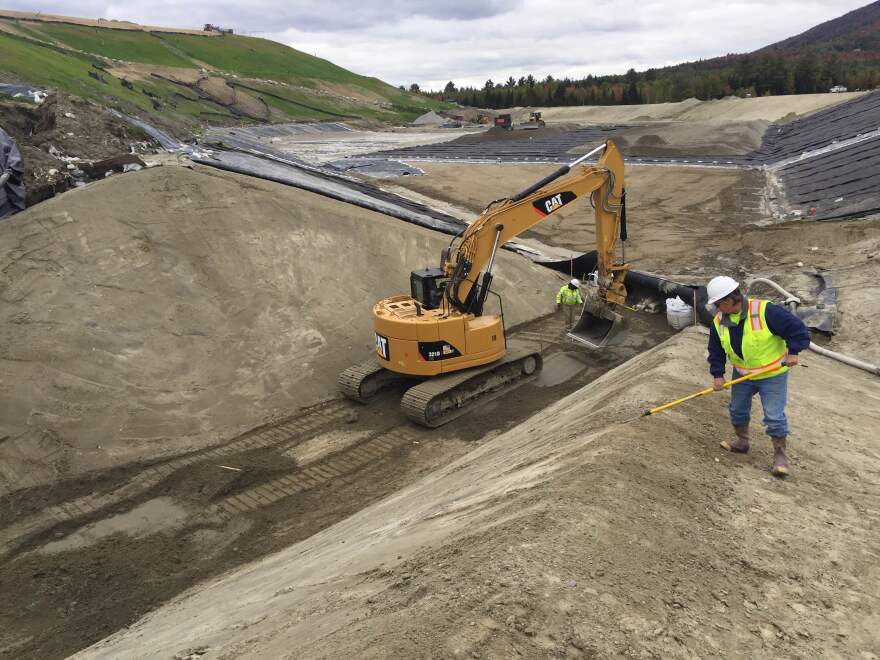House lawmakers heard sharply divided testimony Thursday on plans to limit the development of private landfills in the state.
One bill unveiled in the House environment committee would put a two-year moratorium on private landfill construction.
This would pause permitting for new landfills and for expansions of two existing private facilities in the state: Waste Management’s Turnkey in Rochester and Casella’s dump in Bethlehem.
The bill directs state regulators, in the meantime, to look into building more public landfills and setting up municipal solid waste districts across New Hampshire.
An accompanying bill, with a pending amendment, would ban all landfill construction within two miles of state parks and federal lands.
Lawmakers wrote the bills at the urging of residents in Dalton, a North Country town where the waste company Casella wants to build a new landfill.
Ellen Hays is a neighbor of the proposed site and a member of the Forest Lake Association. She said the Casella project, which is still in early stages, would bring foul odors and threaten the health of the adjacent state park.
"I think that no private corporation has the right to dump trash from all over New England into our state in order to earn money for themselves and their shareholders,” Hays told a House committee.
Casella says about 30 percent of the trash at its nearby Bethlehem landfill comes from out of state. At Turnkey, more than half the trash is brought in from outside New Hampshire.
Jon Swan, an anti-landfill activist in Dalton, said the state should be prioritizing its own trash, and a public, nonprofit landfill system.
"We're just asking for a pause so that there's no continued growth [of private landfills], so that we can look at municipal landfills,” he said. “And it wouldn't have to be right away. We have capacity for New Hampshire trash."
Representatives from Casella and Waste Management argued that municipalities don't have the money or the technological expertise to fill the state and region’s landfill needs alone.

The industry and the Department of Environmental Services oppose both of these landfill bills. They say landfill permitting processes take years and occur even for small modifications, which means any moratorium would cause problems.
They also argue the proposals would over-stretch state regulators' limited resources and strain the state's dwindling landfill capacity – forcing the Turnkey and Bethlehem landfills to close once they filled up, since expansions would be off-limits.
"Technology is not where it needs to be right now to do away with landfills,” said Casella vice president Brian Oliver. “Sometime in the future, I expect that will happen. Right now, that’s not where we are.”
The state Department of Environmental Services says New Hampshire will run out of landfill capacity – public and private – in the mid-2030s.
The Bethlehem facility is due to fill up even sooner. It’s been repeatedly blocked from large expansions by the state and local votes. The facility is also facing a federal water pollution lawsuit.
Fred Anderson, also of the Forest Lake Association in Dalton, said better siting and oversight of landfills is more important than ending them altogether. But he and other advocates agreed with industry representatives that the state's larger problem is with excess waste in general.
Anderson said legislators should be following their own long-time goals by pushing manufacturers to take back more of the waste their products create, and by passing bills to support better recycling, reuse, composting and more.
“The real virtue here is to make less trash,” Anderson said. “Waste is a verb; you don’t get a noun without the verb. So we can do something to help people stop wasting.”
Food waste is a top contributor to climate change, in part through the methane gas emitted as it decomposes, according to the nonprofit Project Drawdown. And plastic products come from fossil fuels, so their use and waste drives greenhouse gas emissions, too.
Scientists also say that marine pollution from landfills and litter can make the world’s warming oceans and their inhabitants even less effective at sequestering carbon dioxide.








